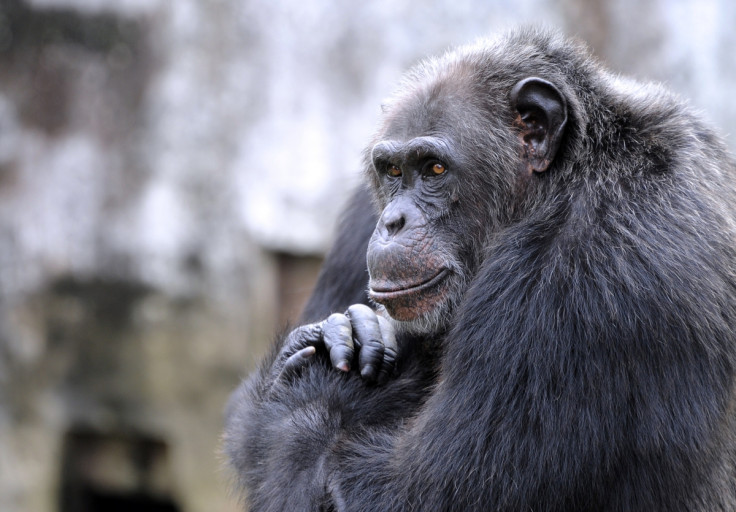Nature Over Nurture: Chimpanzees' Intelligence Comes from Genes not Upbringing

Chimpanzees' intelligence is down to genes rather than upbringing, which suggests that nature rather than nurture governs smart behaviour in our closest living cousins.
Scientists have long pondered the basis of human intelligence, based on IQ tests and studies of identical twins brought up apart, but a new study has found that the "cognitive ability" of primates is dependent on inheritance rather than their environment.
The research could be important for understanding the basis of human intelligence and cognitive abilities, as the genes involved in chimp behaviour are likely to have a similar origin to those involved with human intellect.
"As is the case in humans, genes matter when it comes to cognitive abilities in chimpanzees. It doesn't mean that they are the only factor determining cognitive abilities, but they cannot be ignored," said study leader William Hopkins, of the Yerkes National Primate Research Centre.
"What specific genes underlie the observed individual differences in cognition is not clear, but pursuing this question may lead to candidate genes that changed in human evolution and allowed for the emergence of some human-specific specialisations in cognition," Dr Hopkins told the Independent.
For the study, researchers carried out behavioural tests on 99 chimps aged between nine and 54 years. The performance of each ape was measured on a series of standardised cognitive tests for primates.
The results showed that about 50% of the variation in this ability is down to genetic factors, around the same or a little less than humans.
Based on their ability to carry out these experimental tests, chimp intelligence was not influenced by their sex or how they were reared, for example, by chimp mothers or humans.
"We found that some but not all cognitive traits were significantly heritable in chimpanzees," the researchers said in their scientific paper.
"We further found significant genetic correlations between different dimensions of cognitive functioning, suggesting that the genes that explain the variability of one cognitive trait might also explain that of other cognitive traits."
Hopkins speculates that these skills, which involve foraging and problem-solving, may inheritable as they affect survival and mating chances.
"Smarter chimps might gain access to more food resources and mates," he told New Scientist.
Studying the intelligence of chimpanzees could lead to the discovery of specific intelligence-related genes which arose in the last common relative of humans and chimps.
"It is also intriguing to consider what changes in cortical organisation of the brain might be associated with individual differences in cognition and whether common genes might explain their common variance," Hopkins said.
Researching chimp intelligence has an advantage over human studies because their behaviour is not affected by socio-economic factors, which can influence human performance at IQ tests.
Alex Weiss, a psychologist who studies nonhuman primates at the University of Edinburgh, who was not involved in the study, told Fox News that the findings were "really interesting as these findings mirror what has been found for decades in studies of human twins and human families."
The research was published in the journal published Current Biology.
© Copyright IBTimes 2025. All rights reserved.





















